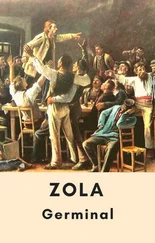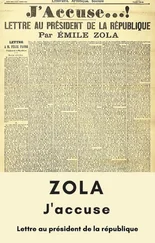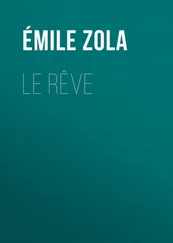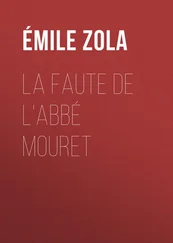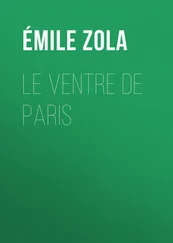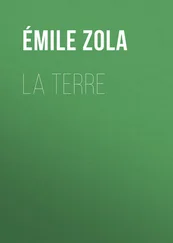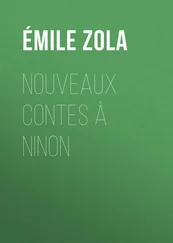Émile Zola - His Masterpiece
Здесь есть возможность читать онлайн «Émile Zola - His Masterpiece» — ознакомительный отрывок электронной книги совершенно бесплатно, а после прочтения отрывка купить полную версию. В некоторых случаях можно слушать аудио, скачать через торрент в формате fb2 и присутствует краткое содержание. Жанр: literature_19, foreign_antique, foreign_prose, на английском языке. Описание произведения, (предисловие) а так же отзывы посетителей доступны на портале библиотеки ЛибКат.
- Название:His Masterpiece
- Автор:
- Жанр:
- Год:неизвестен
- ISBN:нет данных
- Рейтинг книги:5 / 5. Голосов: 1
-
Избранное:Добавить в избранное
- Отзывы:
-
Ваша оценка:
- 100
- 1
- 2
- 3
- 4
- 5
His Masterpiece: краткое содержание, описание и аннотация
Предлагаем к чтению аннотацию, описание, краткое содержание или предисловие (зависит от того, что написал сам автор книги «His Masterpiece»). Если вы не нашли необходимую информацию о книге — напишите в комментариях, мы постараемся отыскать её.
His Masterpiece — читать онлайн ознакомительный отрывок
Ниже представлен текст книги, разбитый по страницам. Система сохранения места последней прочитанной страницы, позволяет с удобством читать онлайн бесплатно книгу «His Masterpiece», без необходимости каждый раз заново искать на чём Вы остановились. Поставьте закладку, и сможете в любой момент перейти на страницу, на которой закончили чтение.
Интервал:
Закладка:
‘Are you going anywhere particular?’ asked Sandoz of Mahoudeau and Jory.
‘No,’ answered the latter, ‘we are going with you. Where are you going?’
Claude, gazing carelessly about him, muttered: ‘I don’t know. That way, if you like.’
They turned on to the Quai d’Orsay, and went as far as the Pont de la Concorde. In front of the Corps Legislatif the painter remarked, with an air of disgust: ‘What a hideous pile!’
‘Jules Favre made a fine speech the other day. How he did rile Rouher,’ said Jory.
However, the others left him no time to proceed, the disputes began afresh. ‘Who was Jules Favre? Who was Rouher? Did they exist? A parcel of idiots whom no one would remember ten years after their death.’ The young men had now begun to cross the bridge, and they shrugged their shoulders with compassion. Then, on reaching the Place de la Concorde, they stopped short and relapsed into silence.
‘Well,’ opined Claude at last, ‘this isn’t bad, by any means.’
It was four o’clock, and the day was waning amidst a glorious powdery shimmer. To the right and left, towards the Madeleine and towards the Corps Legislatif, lines of buildings stretched away, showing against the sky, while in the Tuileries Gardens rose gradients of lofty rounded chestnut trees. And between the verdant borders of the pleasure walks, the avenue of the Champs Elysees sloped upward as far as the eye could reach, topped by the colossal Arc de Triomphe, agape in front of the infinite. A double current, a twofold stream rolled along – horses showing like living eddies, vehicles like retreating waves, which the reflections of a panel or the sudden sparkle of the glass of a carriage lamp seemed to tip with white foam. Lower down, the square – with its vast footways, its roads as broad as lakes – was filled with a constant ebb and flow, crossed in every direction by whirling wheels, and peopled with black specks of men, while the two fountains plashed and streamed, exhaling delicious coolness amid all the ardent life.
Claude, quivering with excitement, kept saying: ‘Ah! Paris! It’s ours. We have only to take it.’
They all grew excited, their eyes opened wide with desire. Was it not glory herself that swept from the summit of that avenue over the whole capital? Paris was there, and they longed to make her theirs.
‘Well, we’ll take her one day,’ said Sandoz, with his obstinate air.
‘To be sure we shall,’ said Mahoudeau and Jory in the simplest manner.
They had resumed walking; they still roamed about, found themselves behind the Madeleine, and went up the Rue Tronchet. At last, as they reached the Place du Havre, Sandoz exclaimed, ‘So we are going to Baudequin’s, eh?’
The others looked as if they had dropped from the sky; in fact, it did seem as if they were going to Baudequin’s.
‘What day of the week is it?’ asked Claude. ‘Thursday, eh? Then Fagerolles and Gagniere are sure to be there. Let’s go to Baudequin’s.’
And thereupon they went up the Rue d’Amsterdam. They had just crossed Paris, one of their favourite rambles, but they took other routes at times – from one end of the quays to the other; or from the Porte St. Jacques to the Moulineaux, or else to Pere-la-Chaise, followed by a roundabout return along the outer boulevards. They roamed the streets, the open spaces, the crossways; they rambled on for whole days, as long as their legs would carry them, as if intent on conquering one district after another by hurling their revolutionary theories at the house-fronts; and the pavement seemed to be their property – all the pavement touched by their feet, all that old battleground whence arose intoxicating fumes which made them forget their lassitude.
The Cafe Baudequin was situated on the Boulevard des Batignolles, at the corner of the Rue Darcet. Without the least why or wherefore, it had been selected by the band as their meeting-place, though Gagniere alone lived in the neighbourhood. They met there regularly on Sunday nights; and on Thursday afternoons, at about five o’clock, those who were then at liberty had made it a habit to look in for a moment. That day, as the weather was fine and bright, the little tables outside under the awning were occupied by rows of customers, obstructing the footway. But the band hated all elbowing and public exhibition, so they jostled the other people in order to go inside, where all was deserted and cool.
‘Hallo, there’s Fagerolles by himself,’ exclaimed Claude.
He had gone straight to their usual table at the end of the cafe, on the left, where he shook hands with a pale, thin, young man, whose pert girlish face was lighted up by a pair of winning, satirical grey eyes, which at times flashed like steel. They all sat down and ordered beer, after which the painter resumed:
‘Do you know that I went to look for you at your father’s; and a nice reception he gave me.’
Fagerolles, who affected a low devil-may-care style, slapped his thighs. ‘Oh, the old fellow plagues me! I hooked it this morning, after a row. He wants me to draw some things for his beastly zinc stuff. As if I hadn’t enough zinc stuff at the Art School.’
This slap at the professors delighted the young man’s friends. He amused them and made himself their idol by dint of alternate flattery and blame. His smile went from one to the other, while, by the aid of a few drops of beer spilt on the table, his long nimble fingers began tracing complicated sketches. His art evidently came very easily to him; it seemed as if he could do anything with a turn of the hand.
‘And Gagniere?’ asked Mahoudeau; ‘haven’t you seen him?’
‘No; I have been here for the last hour.’
Just then Jory, who had remained silent, nudged Sandoz, and directed his attention to a girl seated with a gentleman at a table at the back of the room. There were only two other customers present, two sergeants, who were playing cards. The girl was almost a child, one of those young Parisian hussies who are as lank as ever at eighteen. She suggested a frizzy poodle – with the shower of fair little locks that fell over her dainty little nose, and her large smiling mouth, set between rosy cheeks. She was turning over the leaves of an illustrated paper, while the gentleman accompanying her gravely sipped a glass of Madeira; but every other minute she darted gay glances from over the newspaper towards the band of artists.
‘Pretty, isn’t she?’ whispered Jory. ‘Who is she staring at? Why, she’s looking at me.’
But Fagerolles suddenly broke in: ‘I say, no nonsense. Don’t imagine that I have been here for the last hour merely waiting for you.’
The others laughed; and lowering his voice he told them about the girl, who was named Irma Becot. She was the daughter of a grocer in the Rue Montorgueil, and had been to school in the neighbourhood till she was sixteen, writing her exercises between two bags of lentils, and finishing off her education on her father’s doorstep, lolling about on the pavement, amidst the jostling of the throng, and learning all about life from the everlasting tittle-tattle of the cooks, who retailed all the scandal of the neighbourhood while waiting for five sous’ worth of Gruyere cheese to be served them. Her mother having died, her father himself had begun to lead rather a gay life, in such wise that the whole of the grocery stores – tea, coffee, dried vegetables, and jars and drawers of sweetstuff – were gradually devoured. Irma was still going to school, when, one day, the place was sold up. Her father died of a fit of apoplexy, and Irma sought refuge with a poor aunt, who gave her more kicks than halfpence, with the result that she ended by running away, and taking her flight through all the dancing-places of Montmartre and Batignolles.
Читать дальшеИнтервал:
Закладка:
Похожие книги на «His Masterpiece»
Представляем Вашему вниманию похожие книги на «His Masterpiece» списком для выбора. Мы отобрали схожую по названию и смыслу литературу в надежде предоставить читателям больше вариантов отыскать новые, интересные, ещё непрочитанные произведения.
Обсуждение, отзывы о книге «His Masterpiece» и просто собственные мнения читателей. Оставьте ваши комментарии, напишите, что Вы думаете о произведении, его смысле или главных героях. Укажите что конкретно понравилось, а что нет, и почему Вы так считаете.


